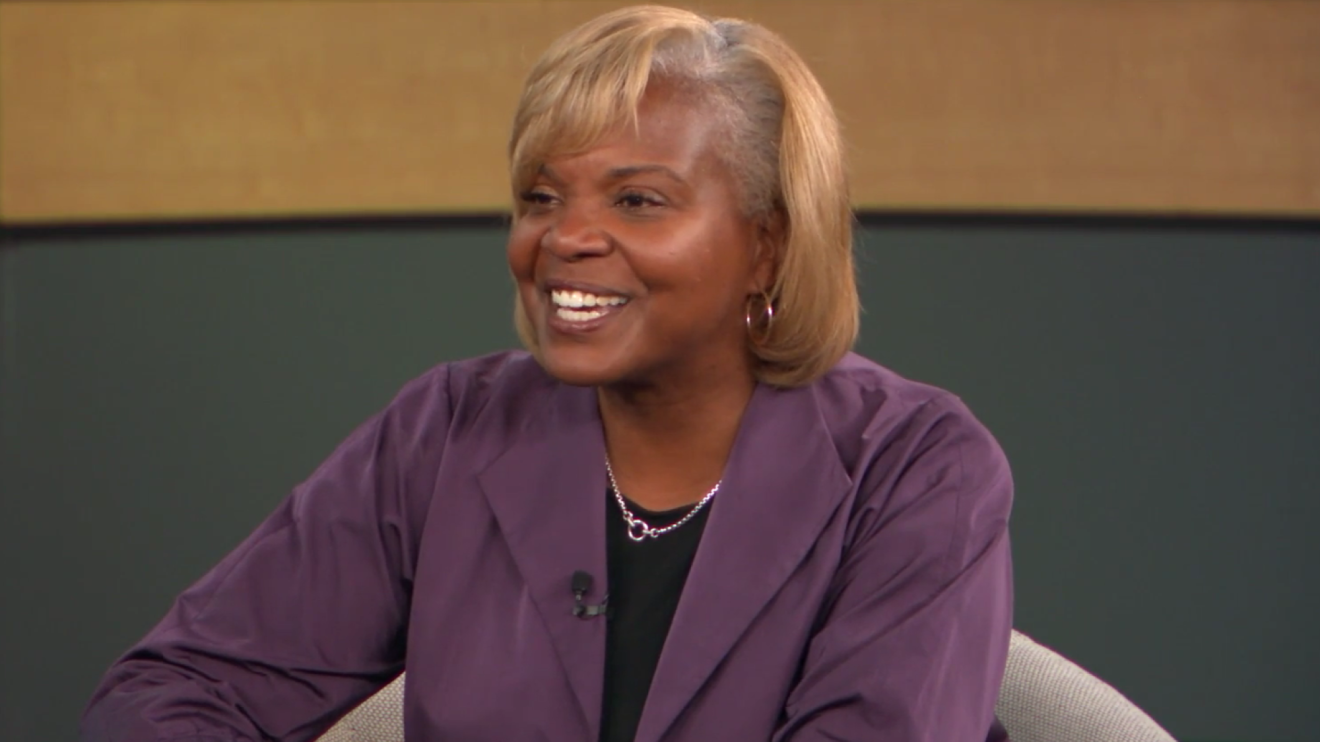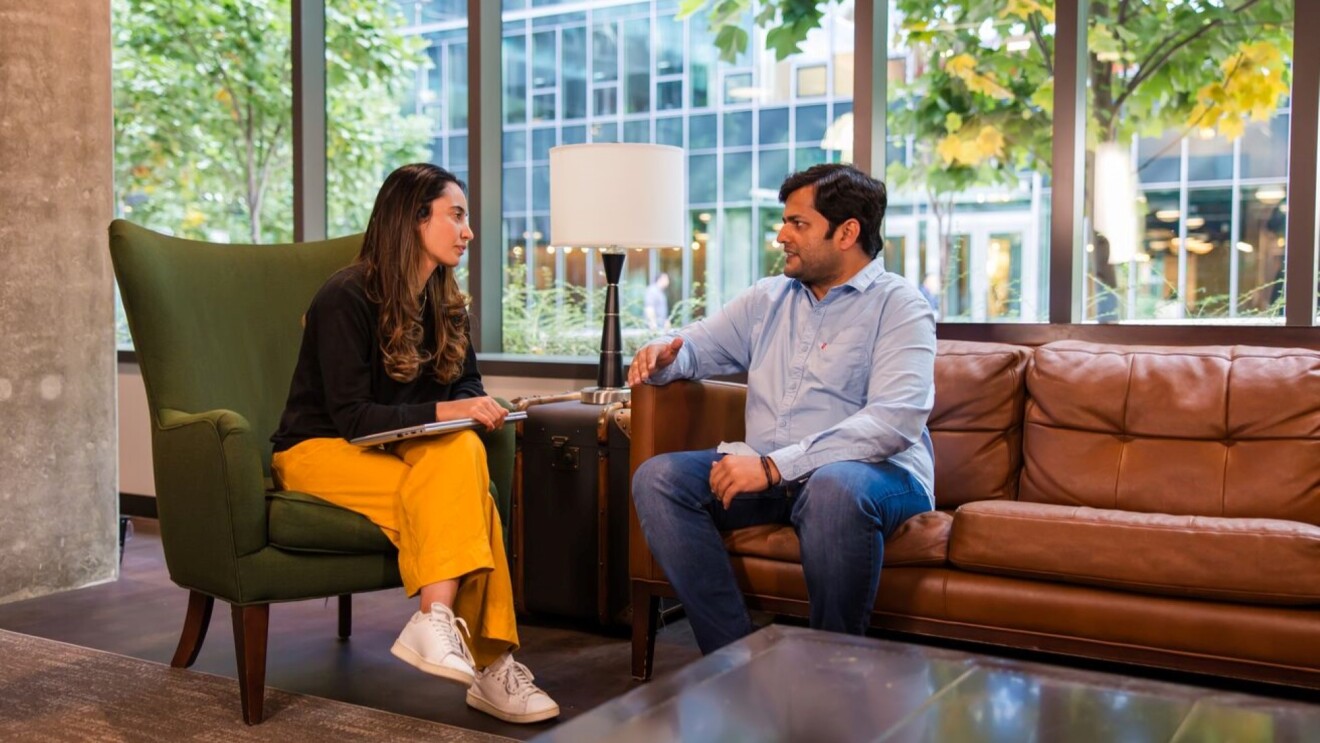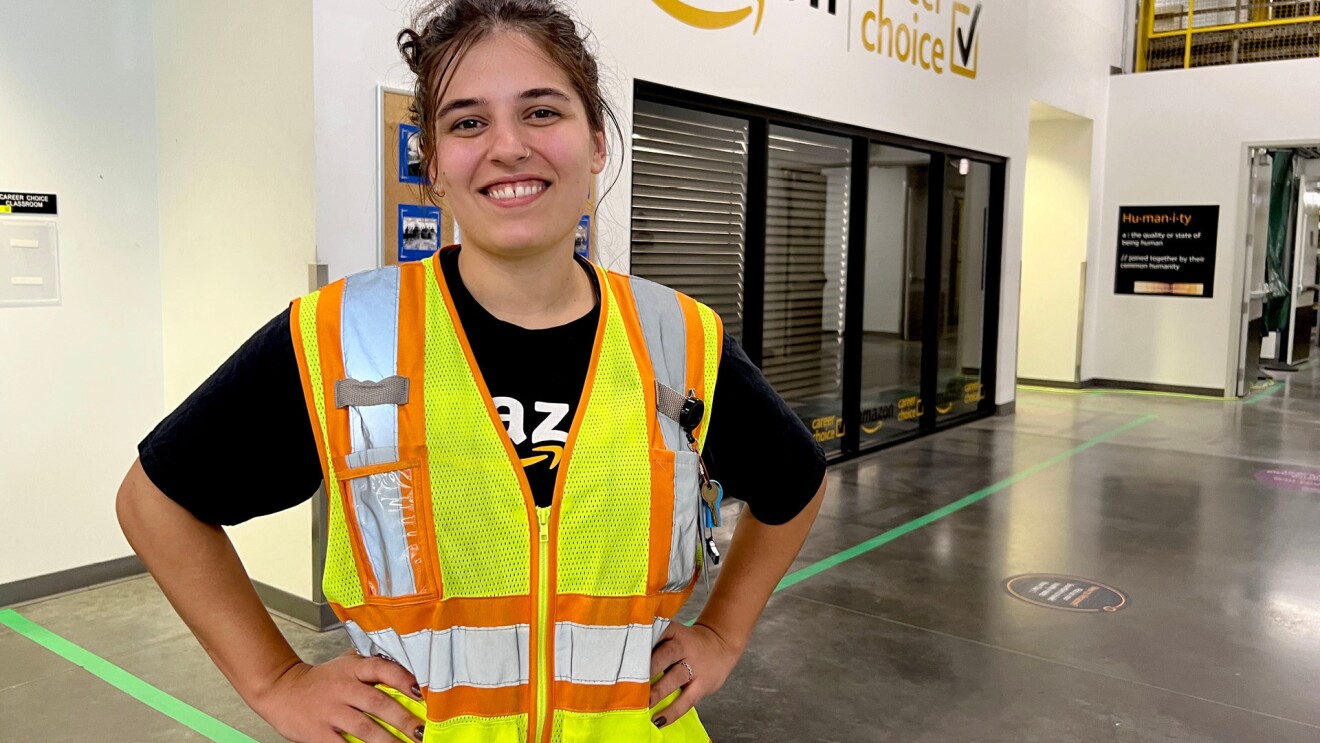Meet the wellness experts and Amazon's Body Positive Peers
01 / 06
Page overview
My body tells me what it needs
Lampert notes that resolutions aren’t about willpower. "Science has come alongside us to prove that when you feel a little out of control, it isn't your willpower failing. It's that your brain is not wired to do what you've set out to do.”
She said that rather than fighting your body's natural response to your goals, listen to what your body is telling you. "There are ways you can actually partner with your neurobiology to feel better," Lampert said. Start by pausing to listen to what your body wants, she said. “Instead of looking to an external source or a message from diet culture to determine what and when you should eat, tap into your internal needs and ask what it is that you need."
Lampert explained that the same philosophy extends to exercise: "We can really change our relationship with our bodies by meeting their needs instead of fighting them."
"Sometimes we don't realize how many negative messages we're taking in until we're overwhelmed by them," said Joy Cox, Ph.D., author of "Fat Girls in Black Bodies: Creating Communities of Our Own."
Cox recommends taking time at the beginning of the year to revisit the negative messages you've accumulated about yourself. Reevaluate those messages to determine if they truly reflect how you feel.
"It's important to spend time with yourself and unpack your own ideas and your own thoughts about your body and how it shows up in the world," said Cox. "Consider who's making the rules about whether or not your body is acceptable. There might be things society has told you are bad that you actually like about yourself. Don't be afraid to embrace those."
"Our relationship with ourselves is the most important relationship any of us have," said Vadodaria. "We can make the same commitments to care for ourselves that we would to a partner."
She recommends dropping resolutions and instead making meaningful vows to yourself. "Vows allow me to cut out the ideal that society is telling me to strive for and focus on who I am, what I mean to me, and what my most important commitments are to myself," she said.
Vadodaria even wears a ring as a reminder of the commitments she's made to herself—her personal play on customer obsession. "This helps me maintain a strong sense of self independence.”
"The current culture of success sends a message that if you're not overworked, losing sleep, and overachieving, you're not successful. I want to combat that message," said Amanda Edelstein, an account executive for startups at Amazon Web Services and an executive on the Body Positive Peers board.
That's why recommends establishing patience with yourself. One tactic Edelstein recommends to cut out unnecessary expectations is employing the “Rule of Three.” "Every day you give yourself three things that you must complete, and everything you do on top of those things is icing on the cake," Edelstein said. "I find that helps me prioritize my life, stay on schedule, and take personal time."
"A lot of the goals we make are based on the notion that the way we are is wrong and must change," said John Ricchio, senior technical program manager at Amazon and a member of Amazon’s Body Positive Peers.
"There will always be somebody telling you that you should be something else, but when you start accepting where you are, your goals will be much more sustainable." Ricchio recommends pausing to consider how you feel before committing to a new goal. "If you feel terrible and compelled to do something because of societal influences, that's probably not the right goal for you," he said.
Instead, he recommends pursuing the goals that make you feel inspired. "Just be honest with yourself about what it is that you're after and why it resonates with you. Give yourself permission to chase what you're really passionate about."
"The root causes of struggling with self-worth are different for everyone, but one thing that is consistent is that we all have those root causes," said Laura Lawrence-Mobbs, learning experience designer at Amazon and Body Positive Peers board member. This year, Lawrence-Mobbs said it's important to remember that you are enough.
"When you have that sense self-worth, you are free to truly be your best," she said. Lawrence-Mobbs said she takes small steps every day, like gratitude journaling and consciously consuming media, to help cultivate self-worth. "I've made an effort to remove media with negative messages and expose myself to the types of media that continue to reinforce my sense of self-worth," she said. Two resources she recommends for uplifting content are the be nourished blog and Random Acts of Kindness.
Trending news and stories
- Amazon unveils 7 new robots powering faster, safer deliveries: Go inside our most innovative delivery station yet
- Introducing Vulcan: Amazon's first robot with a sense of touch
- This new AI tech will make sorting packages easier for Amazon's delivery station employees
- 15 photos from Project Kuiper's first launch of low Earth orbit satellites
















